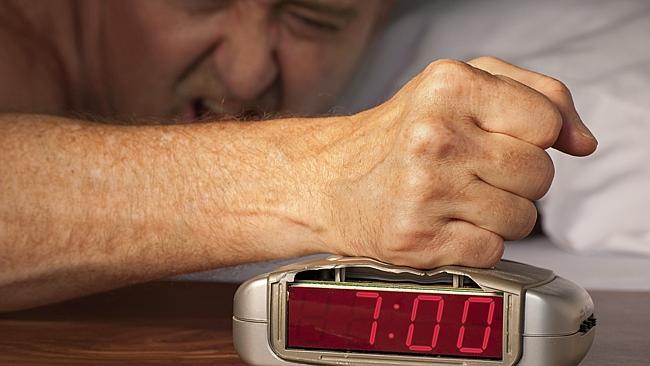The city could be messing with our body clocks, causing long-term health issues
LIVING in a city can be seriously detrimental to your health and there’s one everyday thing that could be messing with us more than noise and pollution.

Illness
Don't miss out on the headlines from Illness. Followed categories will be added to My News.
LIVING in a city can be seriously detrimental to your health and there’s one everyday thing that could be messing with us more than noise and pollution.
City life could be making people more miserable and it’s all because of the lights from high-rise buildings and street lamps.
Sleep Health Foundation chair Professor David Hillman said the lights were interfering with our natural body clocks, affecting our daily productivity and in extreme cases, leading to mental health issues like depression.
It can also cause changes in our blood, and increase insulin resistance and inflammatory.
“A lack of sleep doesn’t have a healthy change to your body,” he said.
“These changes in the long-term are poor for your health, and our body can start producing these changes quite quickly, after a few days of sleep restrictions.
“Poor sleep equals poor health.”
Professor Hillman said light suppressed melatonin production, a hormone that is controlled by our body clock.
It’s known as the hormone of darkness because once the sun sets, our melatonin production increases and makes us tired.
According to the Sleep Health Foundation, melatonin prepares us for bed about two hours before we crawl under the doona.
It helps our body get into the right conditions for sleep and sends down our core body temperature.
So are we getting enough sleep?
Professor Hillman suggests probably not, especially those who live in cities.
“The presence of light is unwelcome in the evening. It can interfere with the rhythmicity,” he said.
“People find it quite distracting and difficult to sleep when there’s light.”
Bedrooms in the countryside are typically darker, making them very restful environments, and people in those areas often sleep better because of a lack of artificial light.
“If you don't have sufficient sleep it affects your brain processing power,” Professor Hillman said.
“Thinking things through properly and accurately becomes more difficult and it’s harder to memorise and process information.
“It can cause things like reaction times to slow and affects your mood, increases irritability and disrupts future sleep patterns.”
Prof Hillman said between 20 and 30 per cent of people complained of inadequate sleep on a near daily basis, and it was a growing problem, particularly for young people.
Prof Hillman said another major problem contributing to sleepless nights was technology.
“We should be worried about light from television screens, from iPhones and computers. These types of light have a high blue content, so blue light is particularly alerting because it suppresses melatonin like no other light wavelength,” he said.
“The use of television screens late in the evening or using computers or smartphones is counter-productive when achieving sleep is concerned.”
There’s not a one size fits all model to get everybody sleeping better, but there are certainly some small changes we can make that will help.
“Get the bedroom environment right,” he said.
“That can range from buying a cheap eye mask to light excluding drapes.
“Spending money on your sleep needs is a sensible thing to do. You spend one third of your life asleep and good sleep is the key to good quality wakefulness.
“Apart from diet and exercise, sleep is the one thing people can do for themselves that will make a big difference to how they feel day to day.
“Good light exclusion is one of the basics of sleep hygiene. Bedrooms that are quiet, are dark and are the right temperature are bedrooms set up for sleep.”
Originally published as The city could be messing with our body clocks, causing long-term health issues



